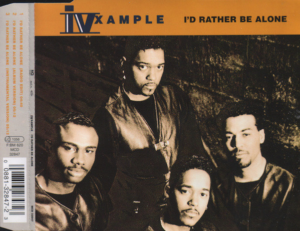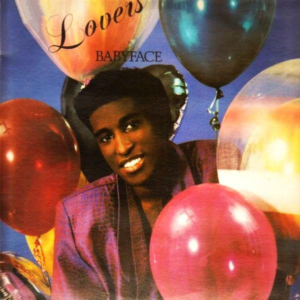The last great, David Peaston, was no stranger to the music industry as his mother, Martha Bass, and sister, Fontella Bass, were already well-known in gospel music. Peaston broke into the music industry after winning several competitions on the iconic television n series Showtime at the Apollo.
The robust singer won the audience with a powerful rendition of Billie Holiday’s “God Bless the Child. Geffen Records signed him and began work on his debut album, Introducing…David Peaston, which hit record stores in early 1989. “Two Wrongs (Don’t Make It Right)” was the lead single and opening track, which featured the writing and production talents of David Jones and Ralph Hawkins, Jr. Rehearing the song the New Jack swing is evident as Gene Griffin and Teddy Riley mixed the song.
Up next, Peaston takes us to church on his cover of “God Bless The Child,” which is arranged by Michael J. Powell and features the legendary Fred Hammond on bass. Peaston quickly makes the song his own and makes Ms. Holiday proud. The final single from the album was another cover. This time, Peaston delved into the book of Mr. Eddie Kendericks. My introduction to David Peaston arrived courtesy of said song.
As you know, I spent time living in England while serving in the Air Force. One night my DJ mentor were having a friendly battle of name that tune, and “Can I” stumped me. I immediately went to Amazon and purchased the CD. Paul Riser produced this song, and Peaston outdoes Kendricks.
His range is remarkable, and he can move seamlessly between registers. His low range is particularly suited to emotional and slow-tempo tracks, while his higher register has a unique, soulful quality that adds depth to his music. His vocal control is superb, allowing him to hit powerful notes and draw out subtle nuances.
The chemistry with Riser continues with “Take Me Now,” and “Tonight,” both of which elude sensuality while avoiding crass lyrics. Riser also gives Peaston a solid album track in “We’re All In This Together.” The remaining tracks, “Eyes of Love,” “Don’t Say No,” and Thank You For The Moment are all solid album tracks.
Peaston would release one more album a year later, featuring writing from a disgraced R&B icon. Sadly he was diagnosed with diabetes in 1994, which ended his recording career. Peaston never got the recognition he deserved. If Peaston had more substantial producers like Jimmy Jam & Terry Lewis or Babyface, one can only wonder how much of an impact he would have on the industry.
Nevertheless, this is a solid debut worth a listen.
Final Grade: B+
Introducing…David Peaston is available on all streaming platforms






